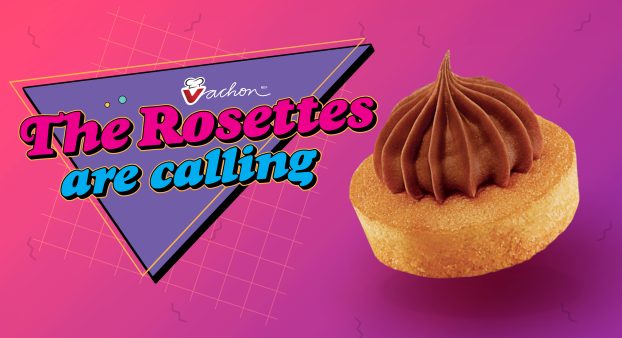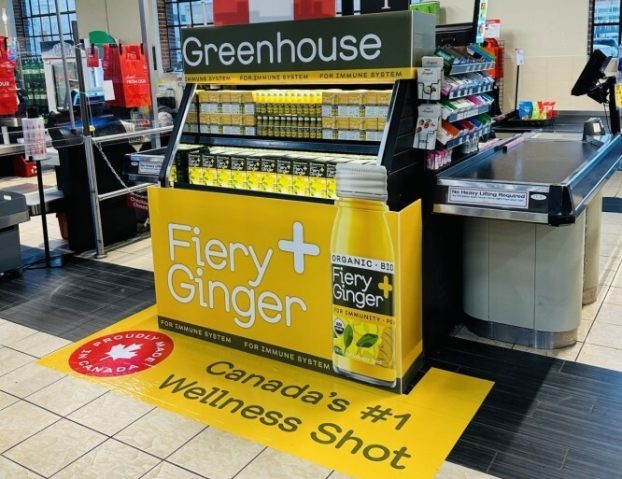Put it this way: If Labatt and Molson are the Canadian brewing industry’s equivalent of big Hollywood blockbusters, then Tree Brewing of Kelowna, B.C. is a no-budget indie feature. And if that sounds like a lopsided match-up…well, remember The Blair Witch Project?
For a tiny West Coast brewery with an annual advertising budget of $20,000-$30,000 – at most – this four-year-old company has succeeded in making a surprising amount of noise. Sales have grown steadily, and Tree’s edgy advertising has garnered both accolades and condemnation.
This year marks something of a turning point, as the brewery embarks on a number of major marketing initiatives. In addition to reformulating its brews, Tree plans to establish a new division dedicated to activities such as product development and online marketing. And, next month, it will undertake a highly unusual product launch, in partnership with one of this country’s hottest ad agencies.
Tree Brewing was founded in 1995 by Geoff Twyman, an Alberta native who moved to Kelowna after earning a biology degree from the University of Calgary. Twyman began working at Cedar Creek Estate Winery, and went on to start a company that provided testing products and services to the burgeoning B.C. wine industry.
Soon after, he noted that the craft brewing business was flourishing in the province – the growth rate was around 25% a year – and decided to start a microbrewery of his own.
Today, Tree Brewing produces 7,500 hectolitres annually – a volume that Twyman hopes to increase to 9,000 this year – and markets a roster of products that includes Tree Pale Ale, Tree Blonde Lager, Red Ale and the company’s best-seller, Amber Ale.
While Tree has never had much money to throw around on advertising, Twyman was able to get some unpaid assistance in the past from Vancouver-based Palmer Jarvis DDB, thanks to his old high-school friend Marc Stoiber, who was a member of the agency’s creative department at the time.
Tree advertising produced at Palmer Jarvis has earned honours in both the Lotus Awards and the Marketing Awards. (It also succeeded in generating publicity in B.C. and Alberta, after the brewery was compelled to drop a couple of more provocative executions, notably a print ad that included some fairly, um, frank discussion about the G-spot.)
Tree Brewing and PJDDB split up last fall, after the latter picked up the Budweiser account. So, at Stoiber’s suggestion, Twyman got in touch with Rethink, a new creative shop founded by former PJDDBers Chris Staples, Ian Grais and Tom Shepansky.
The match was clearly a logical one. Tree needed to work with an agency, and Rethink needed a "rogue" client that would provide some opportunities to create more adventurous advertising.
Their relationship, however, goes well beyond the typical client-agency marriage. The two companies have, in fact, partnered on the development of a new product called Rethink beer, which will launch in June. Tree will handle production, while the agency oversees packaging and marketing.
Staples says the agency decided to start creating Rethink branded products – the plan is to introduce one every year for the next decade – in order to develop case studies demonstrating its ability to think far beyond traditional advertising.
"We wanted to show clients that we could do the advertising, but that we could also come up with great product ideas, do the packaging and then do completely integrated marketing for them," he explains.
It’s also good experience for an agency to learn first-hand what clients go through on a day-to-day basis, Staples adds.
"We now understand what it’s like to be a client without a lot of money in your marketing budget, and what it’s like to go out and try to get your product talked about," he says. "We’re now in our client’s shoes for a change, and we understand that every dollar really does count. Too few agencies understand that."
Rethink beer is a "nutraceutical" – an English-style ale blended with a trio of energizing herbs. The idea is to tap the alternative beverage craze, and to appeal to younger drinkers – particularly the rave crowd.
Ultimately, the partners say, they want to create a kind of underground cult hit. To this end, Rethink beer will boast cutting-edge graphics that will stand out in nightclubs, along with unique reusable packaging and cool bottle tops designed to become collector’s items. A Web component will figure prominently in the branding strategy as well.
The Rethink beer launch isn’t the only major item on Twyman’s current to-do list. Tree Brewing is also in the process of setting up a new division called the Laboratory of the Liquid Arts and Sciences, which Twyman describes as a "product think-tank."
The Laboratory will play a number of roles. For starters, it will formulate new products, both for Tree and for other clients – and it will develop packaging and marketing for those products. It will also work to bring new products into B.C., through Tree’s distribution arm, and will help to facilitate the introduction of Tree beers into other markets. (The brewery’s products are currently sold in B.C. and Alberta, and will soon be rolled out in Washington state.)
In addition, the Lab will be responsible for developing Tree’s online marketing initiatives. Twyman says he envisions using the Web for research purposes, to generate consumer feedback on new product and marketing ideas. Through these online efforts, he adds, the brewery will also be able to establish a database of Tree drinkers, to whom it can then communicate information about promotions, events and new product launches.
Given all the new developments going on in other areas, one might assume that the company would want to keep its core brands relatively stable. But here, too, the spirit of change has taken hold.
According to Twyman, the brewery began reformulating many of its products in the fall – including the popular Amber Ale – in an effort to move away from the softer, maltier beers it has been brewing up to now. "We wanted to make them more distinct," he says.
Tree will be dropping one of its current brands, Red Ale, from the lineup. But it has also recently launched a new India Pale Ale called Hophead. And it has introduced a "Masterbrew" series of seasonal beers, the first of which – Old Stumplifter – came out at Christmas.
Quirkily-named brews like Hophead and Old Stumplifter should go some way toward helping Tree differentiate itself within B.C.’s craft brewing marketplace – an increasingly crowded and competitive sector.
Among Tree’s rivals in this marketplace are Granville Island Brewery, Vancouver Island Brewery and Bear Brewing, as well as Guelph, Ont.-based Sleeman Brewing and Malting, which owns both the Okanagan Springs and Shaftsbury breweries.
Twyman’s goal is continued growth. Indeed, he would like to see Tree’s brewing facility reach its full 20,000-hectolitre capacity within the next three years.
"Our goal is to become the largest craft brewer in B.C.," he says.
Also in this report:
– Pharmasave carves its niche: B.C.-based drugstore chain finds itself facing stiff competition from big-box retailers and major supermarkets p.25
– TransLink touts broadened mandate: Vancouver transit authority lets consumers know it’s more than just "the old bus company" p.27
– Aquarium asks people to test the waters: New campaign will cast net wide to draw natives and tourists alike to venerable Vancouver institution p.30

























